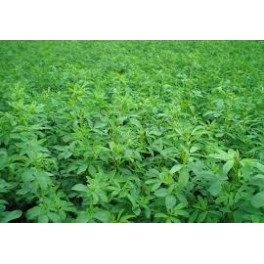Plant
Chemicals
Include: |
3'-Methoxycoumestrol, 3-Methylbutanol, -O-Methylcoumestrol 4-Amino-Butyric-Acid, 11,12-Dimethoxy-7-Hydroxycoumestin, Acetone, Adenine, Adenosine, Alfalfone, Alpha-Spinasterol, Alpha-Tocopherol, Amylase, Arabinose, Beta-sitosterol, Betaine, Biochanin-A, Butanone, Calcium, Campesterol, Chlorophyllide-A, Choline,Coagulase, Coumestrol, Cryptoxanthin, Cycloartenol, Cytidine, Daidzen, Daphnoretin, Erepsin, Folacin, Formononetin , Genistein, Guanine, Guanosine, Hederagenin, Hentriacontane, Hydrogen- cyanide, Hypoxanthine, Inosine, Inositol, Invertase, Isocytosine, L-Homostachydrine , L-Stachydrine, Limonene,Lucernol, Lutein, Magnesium, Malic-acid, Malonic-acid, Manganese, Medicagenic-acid, Medicagol, Molybdenum, Myristone, Neoxanthin, Niacin, Octacosanol, Oxalic, Pectin, Pectinase, Pentanal, Peroxidase, Phaeophorbide-A, Phosphorus, Potassium, Propanal, Protein, Pyridoxine, Quinic-acid, Riboflavin, Ribose, Saponin, Sativol, Selenium, Shikimic-acid, Silicon, Soyasapogenols, Stachydrine, Stigmasterol, Succinic-acid, Tannin, Thiamin, Triacontanol, Tricin, Trifoliol, Trigonelline, Trimethylamine, Tryptophan, Violaxanthin, Vit-E, Vit-K, Xanthophylls, Xylose, Zeaxanthin |
 Maximize
Maximize






































